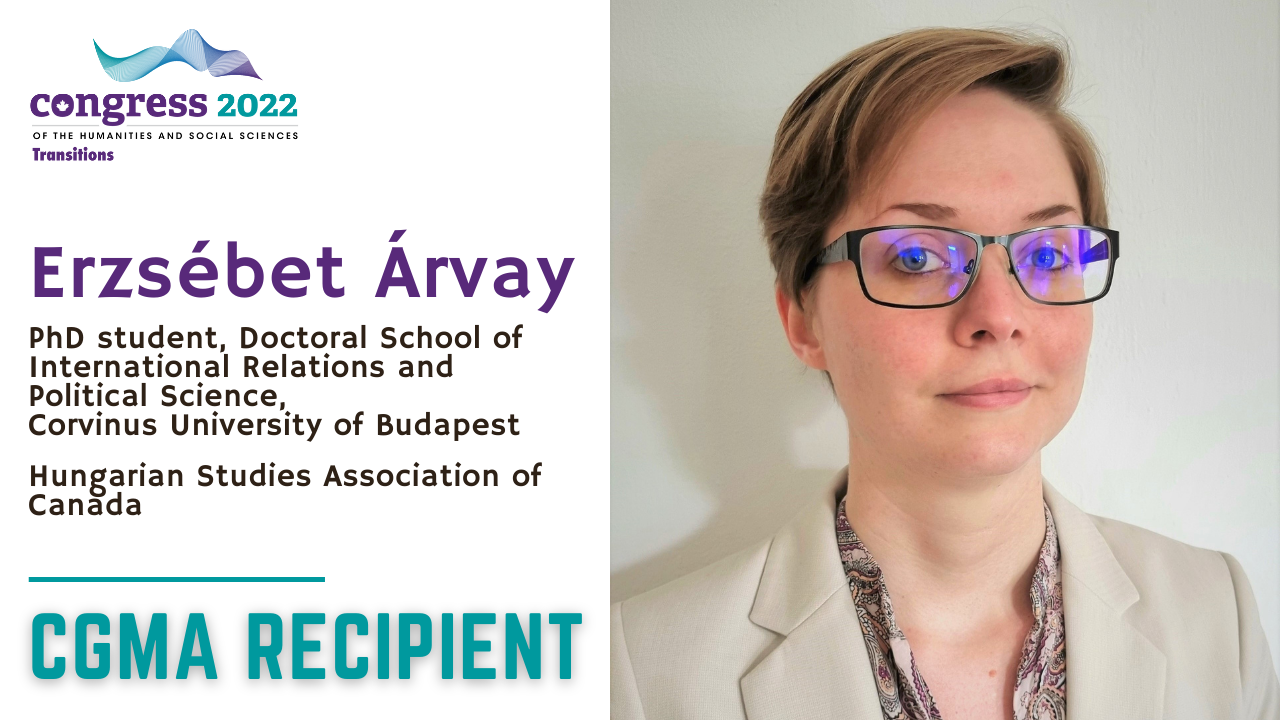Nominated by member scholarly associations of the Federation for the Humanities and Social Sciences, the 2022 Congress Graduate Merit Awards recognize exceptional graduate students who will be presenting their work at the Congress of the Humanities and Social Sciences.

Tell us about yourself.
I am a PhD student of the Doctoral School of International Relations and Political Science at Corvinus University of Budapest. My research focuses on the diaspora policies of the Hungarian People’s Republic during the Cold War, the aim of my project is to develop a process theory that explains the construction of diaspora engagement policies of the era.
At which conference(s) will you be presenting and/or attending?
Hungarian Studies Association of Canada 36th Annual Conference
Theme of the Conference: Transitions: Hungary and Hungarians at Crossroads
What is the title of your Congress 2022 presentation?
“Constructing the Image of the Hungarian Diaspora: The Practices of the Hungarian People’s Republic”
How would you describe the research you will be presenting at Congress 2022?
My paper assesses the perceived challenges that Hungarian exile diasporans imposed on the Hungarian state during the Cold War, in order to examine how state and diaspora relations were regulated between 1956 and 1989. The presentation explores the interactions that forms the structures and mechanisms of state-diaspora relations during the Cold War in a transnational context, in order to integrate the diaspora policies of the Kádár era into the parallel histories of the Soviet satellite states. My research aims at explaining the diaspora policymaking processes of an authoritarian state, and thus contributing to the scholarly literature on diaspora engagement.
How does the research you will be presenting connect with the Congress 2022 theme, Transitions?
My presentation explores how the transition that was brought about by the events of 1956 affected Hungarians beyond state borders. During the era, the image that the Hungarian state constructed about members of the diaspora constantly transitioned from “the enemies of the state” through “the mislead masses” to “the friendly Western Hungarians”. The changing image focused on the actions and functions of émigrés that were realized as challenges by the Hungarian state. My paper discusses these perceived challenges that the state attributed to the diasporic activities.
Share your hopes for Congress 2022.
I am looking forward to participating in inspiring conversations and I hope to connect with peers from around the world.
